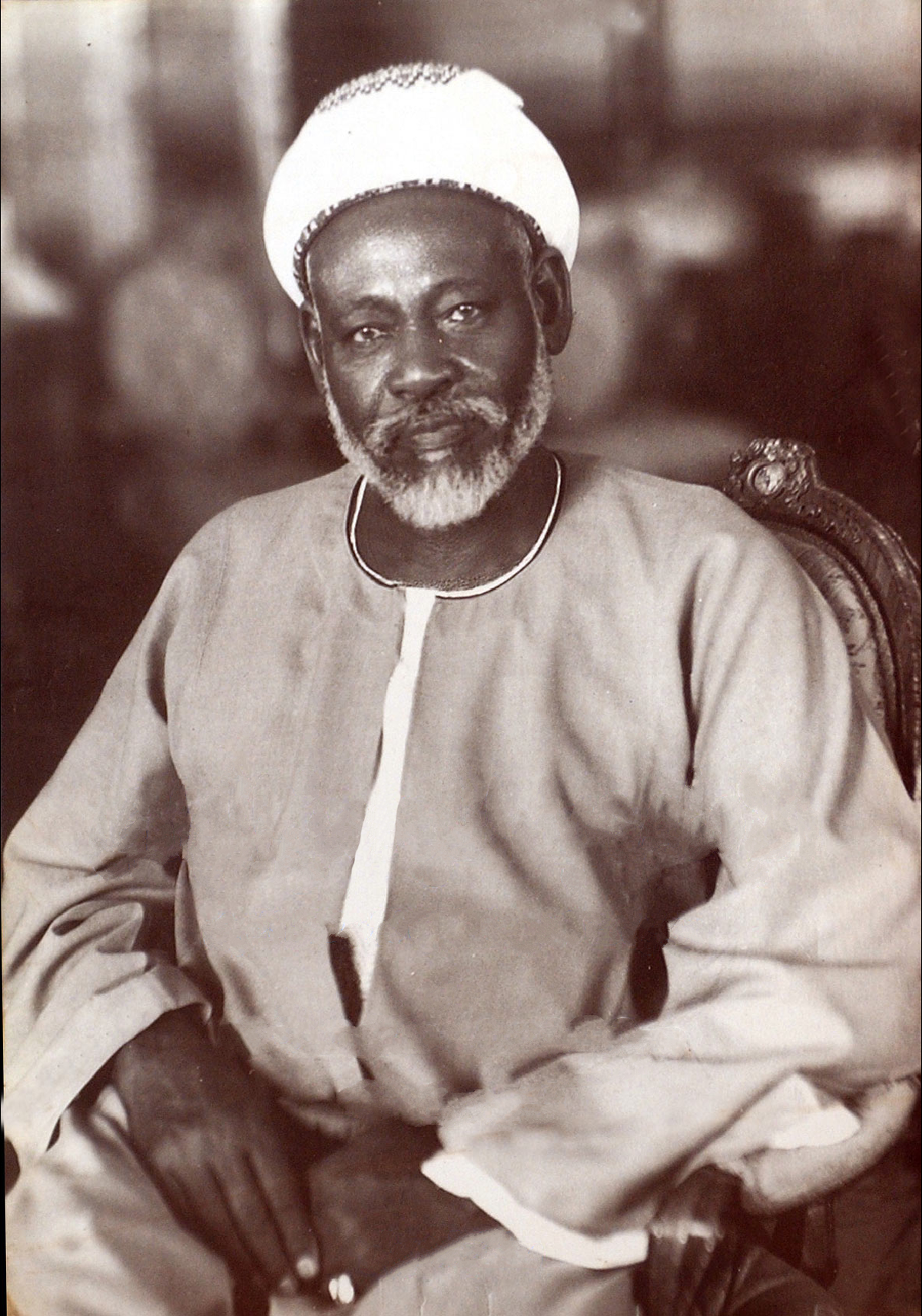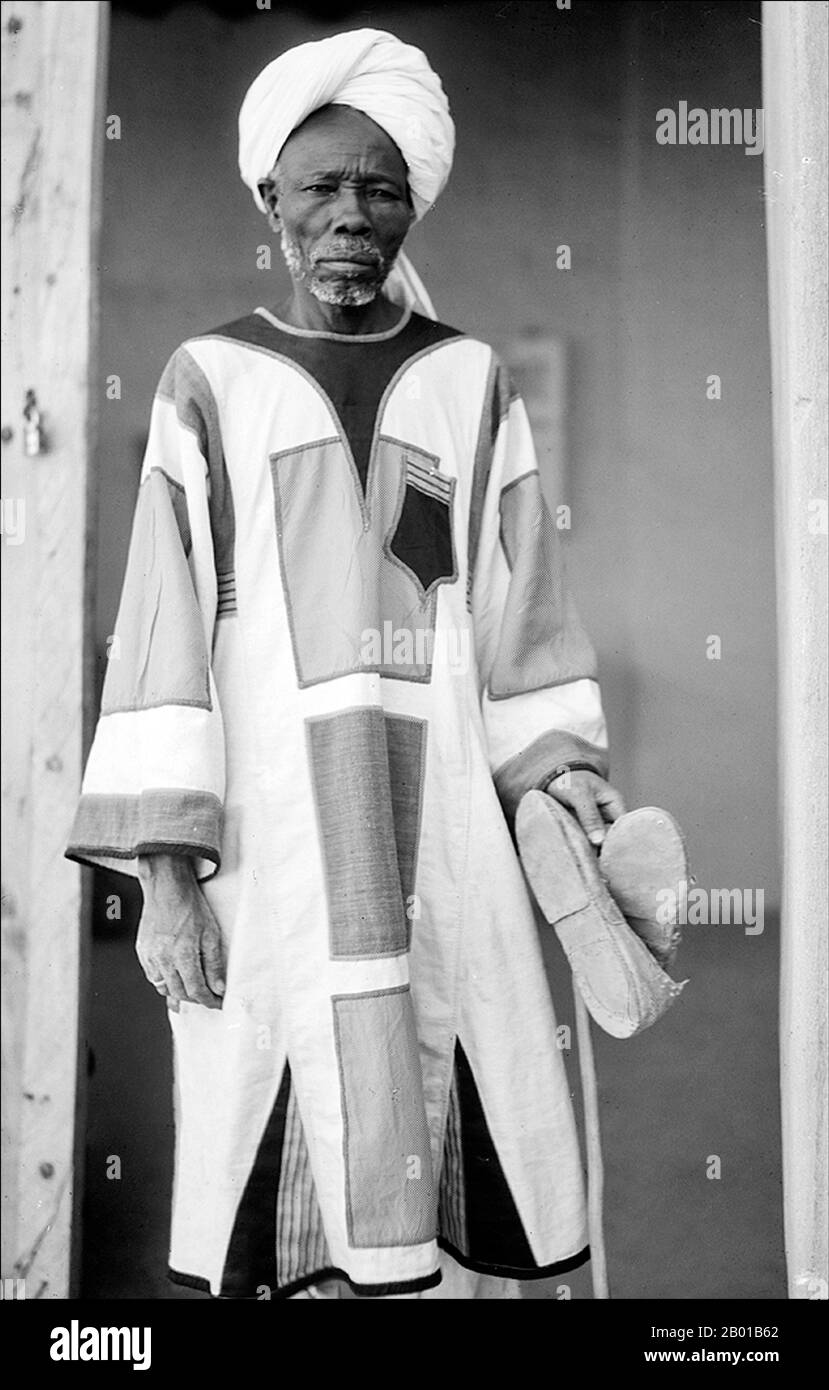
Have you ever contemplated the profound impact that one individual can have on the trajectory of history? This is precisely what al-Mahdī accomplished during the late 19th century. Born on August 12, 1844, in Sudan, he emerged as a significant figure in Islamic history, leaving an indelible mark on the region and beyond. Al-Mahdī’s vision and leadership led to the establishment of a vast Islamic state that stretched impressively from the shores of the Red Sea all the way to Central Africa. His movement not only challenged colonial powers but also inspired a sense of unity and purpose among Muslims in the region. As we explore the captivating life of this extraordinary leader, we will uncover the events and ideologies that shaped his journey and the lasting legacy he left behind. Al-Mahdī’s story is one of resilience, faith, and the relentless pursuit of justice, making him a pivotal figure in the annals of history.
Early Life: Roots of a Revolutionary

From Humble Beginnings
Muḥammad Aḥmad, who would later be known as al-Mahdī, was born into a modest family in the Dongola District of Nubia, where his father worked as a shipbuilder. The family soon relocated to Karari, a quaint river village situated near the bustling city of Khartoum. Growing up in this environment, al-Mahdī developed an early and profound passion for religious studies, a passion that would ultimately shape his destiny and influence the course of Sudanese history.
A Shift Towards Mysticism
Rather than following the conventional educational path that many of his contemporaries chose, such as attending prestigious institutions like al-Azhar University, al-Mahdī found himself drawn to a more mystical interpretation of Islam. He dedicated himself to an in-depth study of the Qurʾān and immersed himself in the Ṣūfī tradition, which emphasized the importance of personal spiritual experiences and a deep, intimate connection with the divine, rather than adhering strictly to established orthodoxy.
Joining the Sammāniyyah Order
In his quest for spiritual enlightenment, al-Mahdī became a member of the Sammāniyyah order, a religious brotherhood that played a significant role in his spiritual development. This affiliation allowed him to further explore his beliefs while distancing himself from the ruling elite of the time. Instead of aligning with the powerful, he chose to focus on addressing the spiritual needs and aspirations of the Sudanese people, which would later become a cornerstone of his mission and legacy.
The Divine Mission: Proclaiming al-Mahdī

The Call to Purify Islam
In March of 1881, a pivotal moment in Islamic history unfolded when al-Mahdī, a charismatic leader, proclaimed to his devoted followers that he had been divinely chosen by God to undertake the monumental task of purifying Islam. His mission was not only to cleanse the faith of perceived impurities but also to challenge and ultimately overthrow the corrupt governments that had strayed from the true teachings of Islam. This bold declaration marked the inception of a significant movement that would resonate deeply throughout Sudan and extend its influence far beyond its borders, inspiring countless individuals to rally behind his cause.
Assuming the Title of al-Mahdī
On June 29, 1881, al-Mahdī took a momentous step by publicly declaring himself as al-Mahdī, a title that translates to “the guided one” in Islamic tradition. This proclamation was not merely a personal assertion; it sparked an overwhelming wave of enthusiasm and fervor among his followers. Many viewed him as a messianic figure, one who was destined to restore the faith to its original purity and glory. His declaration galvanized a movement that sought to reclaim the spiritual and political integrity of Islam, igniting hope and determination among those who felt disillusioned by the prevailing state of affairs.
The Rise of al-Mahdī’s Movement

Unifying Diverse Discontent
During this tumultuous period, Sudan was a hotbed of discontent, with a wide array of groups expressing their dissatisfaction with the ruling elite. From oppressed taxpayers burdened by heavy taxation to weary tribesmen who felt marginalized and neglected, the populace was united in their grievances against the government. Recognizing the potential for collective action, Al-Mahdī emerged as a charismatic leader who adeptly brought together these disparate factions. Through his vision and persuasive rhetoric, he transformed their individual frustrations into a powerful and cohesive movement aimed at challenging the status quo and seeking justice for all.
Military Campaigns: The Conquest of Khartoum
Al-Mahdī’s military campaigns were remarkable in their audacity and effectiveness. Beginning with only a small group of devoted followers, armed primarily with basic weapons, he embarked on a series of strategic operations that would ultimately lead to the capture of Khartoum on January 26, 1885. This pivotal victory represented not just a tactical success but also a significant blow to the Egyptian government, which had long held sway over the region. Al-Mahdī’s ability to inspire and mobilize his followers played a crucial role in this achievement, marking a turning point in Sudan’s struggle for autonomy and self-determination.
Establishing a Theocratic State

Omdurman: The Capital of a New Era
After capturing Khartoum, al-Mahdī established a theocratic state with its capital at Omdurman. Here, he implemented a system of governance based on Islamic principles, collecting taxes according to the Qurʾān rather than the demands of the Egyptian rulers.
Military Successes and Propaganda
By the end of 1883, al-Mahdī’s forces had defeated three Egyptian armies, showcasing his military prowess. His ability to use propaganda effectively helped bolster his image and sway public opinion in his favor.
The Legacy of al-Mahdī

Impact on Sudan and Beyond
Al-Mahdī’s movement had a lasting impact on Sudanese society and Islamic history. His efforts to unify the Sudanese people transcended tribal divisions, creating a sense of national identity.
Influence on Future Movements
Even a century after his death on June 22, 1885, al-Mahdī’s legacy continued to inspire various movements across the Islamic world. His vision of a purified Islam resonated with many who sought to challenge colonial powers and corrupt regimes.

In conclusion, al-Mahdī was not just a leader; he was a revolutionary who changed the course of history in Sudan. His life story is a testament to the power of faith, unity, and the relentless pursuit of justice. So, the next time you hear about a historical figure who made a significant impact, remember al-Mahdī and the legacy he left behind.
Table: Key Events in al-Mahdī’s Life

| Year | Event |
|---|---|
| 1844 | Born in Dongola District, Nubia |
| 1881 | Proclaimed his divine mission and assumed the title of al-Mahdī |
| 1885 | Captured Khartoum and established a theocratic state |
| 1885 | Died in Omdurman |

